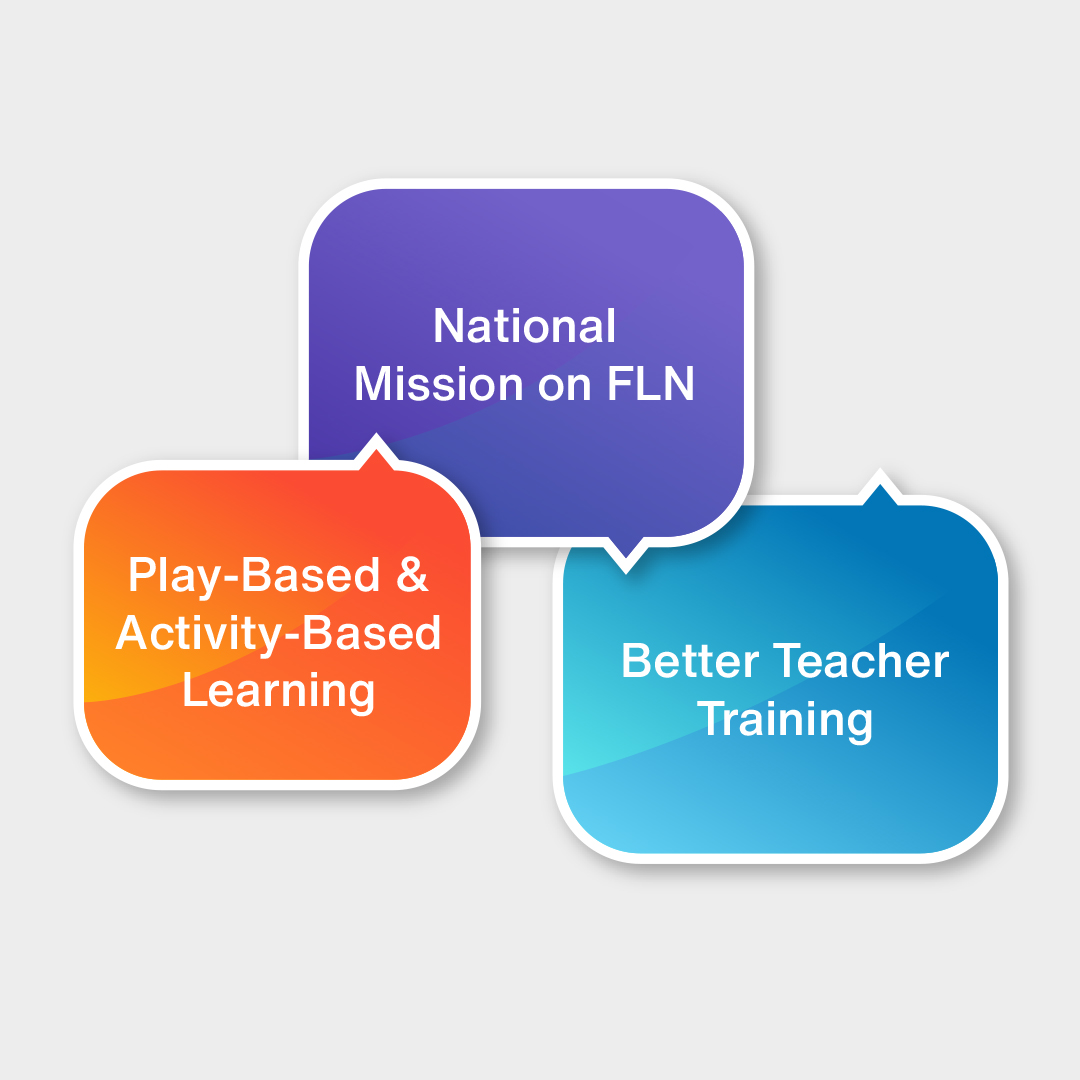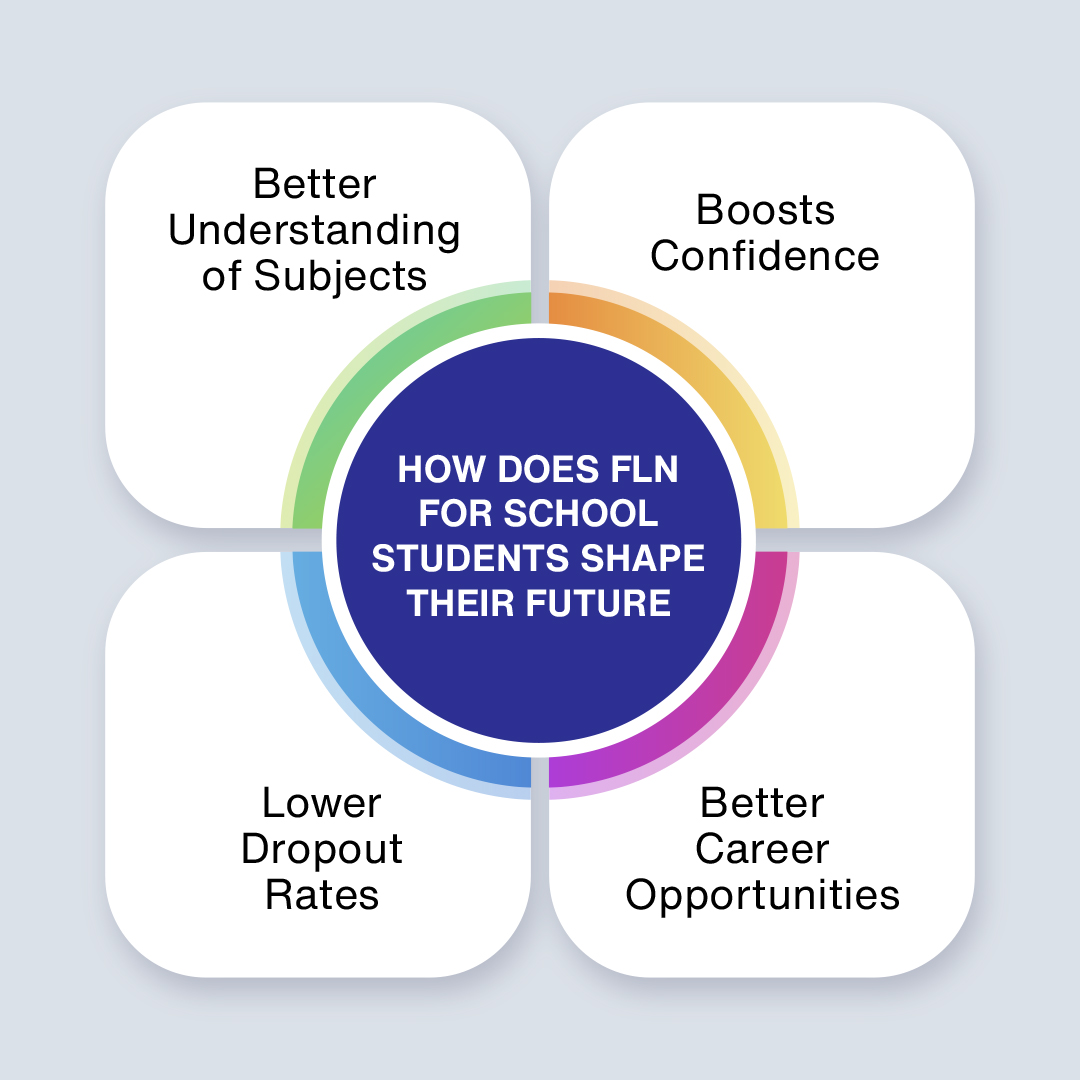What is Foundational Literacy and Numeracy, and Why Does It Matter?
What is Foundational Literacy and Numeracy, and Why Does It Matter?
Think about this—by the time a child is around ten years old, they should be able to read with understanding and solve basic math problems confidently. That is what Foundational Literacy and Numeracy (FLN) is all about. It is not just about learning ABCs and 123s—it is about setting up kids for lifelong success.
Without strong FLN skills, children struggle as they move into higher grades. Reading complex subjects? Doing calculations? Understanding new concepts? All of it becomes a challenge. That is why mastering basic reading and math skills early on is so important—it is the foundation for everything else.
In India, the National Education Policy (NEP) 2020 has put FLN at the heart of early education. The goal? Ensure every child has strong reading and math skills by the end of Grade 3. Because once that foundation is built, everything else just clicks into place!
How is the NEP 2020 Curriculum Making FLN a Priority?
The NEP 2020 structure is changing the way early education works in India. It introduces a new structure that focuses on the foundational years (ages 3–8), ensuring kids get a solid start in school.
Here is how it is making a difference:
- National Mission on FLN: A dedicated mission to make sure kids master reading and numeracy by Grade 3.
- Play-Based & Activity-Based Learning: Because kids learn best when they are having fun!
- Better Teacher Training: Equipping educators with modern, interactive teaching techniques.
By focusing on real understanding rather than just rote learning, foundational literacy and numeracy are setting up kids for real-world success.
Why is FLN Still a Challenge?
Even with all these efforts, many children still struggle with foundational literacy and numeracy. But why?
 Not Enough Trained Teachers
Not Enough Trained Teachers
Many educators are not equipped with modern FLN teaching methods.
 Lack of Resources
Lack of Resources
Schools, especially in rural areas, often do not have enough materials or infrastructure.
 Language Barriers
Language Barriers
India is so diverse, which makes it hard to create a one-size-fits-all learning model.
 Parents Are Not Always Aware
Parents Are Not Always Aware
Many parents do not realise how important FLN is in these early years.
The good news? NEP 2020 structure is working to overcome these challenges. But it is a team effort—schools, teachers, and parents all need to work together!
How Does FLN for School Students Shape Their Future?
Strong foundational literacy and numeracy skills do not just help in school—they shape a child's entire future.
- Better Understanding of Subjects: When kids can read well, they can grasp any subject more easily.
- Boosts Confidence: Mastering basic math and reading skills makes kids feel capable and independent.
- Lower Dropout Rates: Kids with a strong foundation stay in school longer because they do not struggle as much.
- Better Career Opportunities: Everything from higher studies to job success depends on these early skills.
Simply put—
FLN for school students is not just about learning; it is about thriving in every aspect of life.
How is Digital Learning Changing FLN for the Better?
The world is moving online, and education is no different! Digital learning is revolutionising how kids develop FLN skills in online schools, and here is why:
- Personalised Learning: Kids learn at their own pace, making education more effective.
- Interactive Content: Fun videos, games, and activities make learning exciting.
- Flexibility: Kids learn anytime, anywhere, making it easier to reinforce concepts.
With
online education,
foundational literacy and numeracy is not limited to just classrooms—it is reaching kids everywhere, even in remote areas!
How Can Parents Help With FLN at Home?
Parents play a huge role in their child’s learning journey. You do not need to be a teacher—just small, everyday habits can make a big impact!
- Read Together: Even 15 minutes a day can build vocabulary and comprehension.
- Make Math Fun: Let kids calculate the grocery bill or measure ingredients while cooking.
- Encourage Questions: Curiosity is the best teacher—let kids explore and find answers!
- Integration with Primary Education: Smooth transition from ECCE to formal schooling.
Remember—learning starts at home! The more engaged and involved parents are, the stronger the foundation for kids.
How The Class of One (TCO1) is Leading the Way in FLN
At The Class of One (TCO1), we believe that every child deserves a strong start. That is why we have designed our online learning programs to make FLN fun, engaging, and effective.
-
NEP 2020-Aligned Curriculum: Ensuring kids get the best foundational education.
-
Interactive Learning Methods: No rote memorisation—just fun, activity-based lessons!
-
Experienced Educators: Teachers who understand and support every child’s unique learning style.
-
Personalised Learning: Every child learns at their own pace, making education stress-free and enjoyable.
At TCO1, we do not just teach reading and math—we empower young minds with the skills they need for life.
The Future Starts with FLN!
A strong foundational literacy and numeracy is the first step toward academic success, confidence, and a bright future. With the right support—at school, at home, and through digital learning—every child can excel. Want to give your child the best start in education? Join The Class of One (TCO1) today and unlock their full potential!






